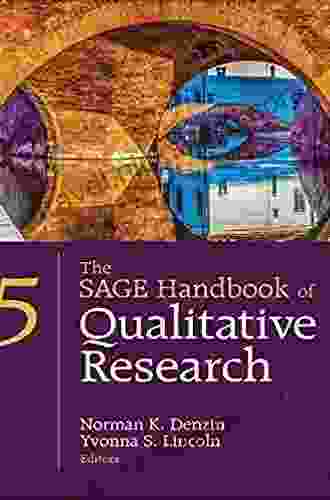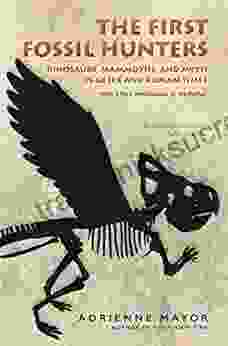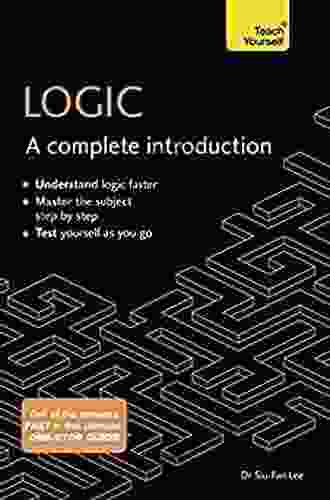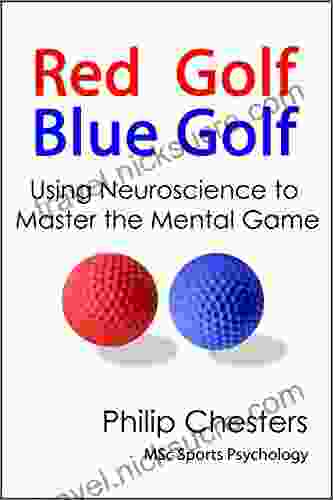Using Neuroscience to Master the Mental Game: A Comprehensive Guide

The mental game is a crucial aspect of success in any endeavor, be it personal, academic, or professional. Whether you're an athlete striving for victory, a student aiming for academic excellence, or an entrepreneur navigating the challenges of business, your mind plays a pivotal role in determining your outcomes.
4.1 out of 5
| Language | : | English |
| File size | : | 2080 KB |
| Text-to-Speech | : | Enabled |
| Screen Reader | : | Supported |
| Enhanced typesetting | : | Enabled |
| Word Wise | : | Enabled |
| Print length | : | 191 pages |
| Lending | : | Enabled |
Fortunately, neuroscience has shed invaluable light on the inner workings of the brain and how we can harness its power to enhance our mental performance. This comprehensive guide will delve into the fascinating realm of neuroscience and explore practical techniques you can apply to master the mental game in various areas of life.
Understanding the Neuroscience of Focus
Focus is the ability to concentrate on a specific task or goal and maintain that attention over time. It's a key component of mental performance, enabling us to sift through distractions and allocate our cognitive resources effectively.
Neuroscience research has revealed that focus is regulated by the prefrontal cortex (PFC),a brain region responsible for higher-order cognitive functions such as planning, decision-making, and attention control. When we focus, the PFC activates a network of brain areas that work together to inhibit distractions and enhance attention to relevant stimuli.
One crucial neurotransmitter involved in focus is dopamine, which plays a role in reward and motivation. When we engage in tasks that align with our goals, the release of dopamine helps us to persist and stay focused.
Techniques to Enhance Focus
* Mindfulness Meditation: Practicing mindfulness meditation can strengthen the prefrontal cortex and improve attention control. By training our minds to stay present and focused on the current moment, we can gradually cultivate greater attentional capacities. * Goal-Setting: Setting clear and specific goals provides direction for our attention and helps us to filter out distractions. Regularly revisiting our goals and visualizing their achievement can further enhance our focus. * Eliminate Distractions: Creating a distraction-free workspace or environment can significantly improve focus. Turn off notifications, find a quiet spot, and minimize visual and auditory distractions as much as possible.
Building Resilience: The Neuroscience of Overcoming Challenges
Resilience is the ability to bounce back from adversity and setbacks. It's an essential skill for navigating the ups and downs of life, maintaining emotional well-being, and achieving long-term success.
Neuroscience has shown that resilience is shaped by both our genetic makeup and our experiences. Positive childhood experiences, such as secure attachment to caregivers, can strengthen neural pathways associated with resilience.
The stress hormone cortisol plays a significant role in resilience. When we experience stress, cortisol is released, which can impair cognitive function and decision-making. However, studies have found that individuals with high resilience have lower cortisol levels in response to stressful situations.
Techniques to Enhance Resilience
* Cognitive Reframing: Reframing negative thoughts and experiences in a more positive or optimistic light can help to reduce stress and build resilience. Instead of dwelling on setbacks, focus on the lessons they offer and the opportunities for growth. * Social Support: Strong social connections and support networks can provide a buffer against stress and promote resilience. Nurturing relationships with family, friends, and mentors who uplift and encourage us can help us to cope with challenges more effectively. * Physical Exercise: Regular physical exercise has been shown to reduce stress levels, improve mood, and enhance resilience. Exercise releases endorphins, which have mood-boosting effects and promote overall well-being.
Unlocking Confidence: The Neuroscience of Self-Belief
Confidence is a state of self-assurance and belief in one's abilities. It's a powerful psychological state that can help us to take risks, pursue our goals, and achieve success in various areas of life.
Neuroscience research has shown that confidence is closely linked to the release of dopamine in the brain. When we experience success or positive outcomes, dopamine is released, which reinforces our belief in our abilities.
The amygdala, a brain region involved in emotional processing, also plays a role in confidence. Individuals with high confidence have been shown to have decreased activity in the amygdala in response to threats or challenges.
Techniques to Enhance Confidence
* Set Realistic Goals: Achieving realistic and attainable goals can help to build confidence gradually. Instead of setting lofty, intimidating goals, start with smaller, manageable steps that you can accomplish and build upon. * Positive Self-Talk: Engaging in positive self-talk can reinforce our beliefs in ourselves and our abilities. Challenge negative thoughts and replace them with positive affirmations and encouraging self-statements. * Visualize Success: Visualization is a powerful tool for building confidence. Visualize yourself achieving your goals and performing successfully in challenging situations. This can help to activate neural pathways associated with positive outcomes and create a sense of self-efficacy.
Developing Mental Agility: The Neuroscience of Adaptability and Flexibility
Mental agility refers to our ability to adapt quickly to changing circumstances, solve problems creatively, and learn new skills effectively. It's a crucial skill in today's fast-paced, constantly evolving world.
Neuroscience has found that mental agility is associated with increased connectivity between different brain regions. Individuals with high mental agility have more flexible neural connections that allow for efficient information processing and quick adaptation to novel situations.
Brain-derived neurotrophic factor (BDNF) is a neurotransmitter that plays a role in neural growth and plasticity. Studies have linked higher levels of BDNF to enhanced cognitive flexibility and mental agility.
Techniques to Enhance Mental Agility
* Learn a New Skill: Learning a new skill, such as playing a musical instrument or speaking a new language, can challenge our brains and encourage the formation of new neural connections. * Engage in Brain Training Games: Brain training games and puzzles can help to improve cognitive flexibility and problem-solving abilities. These games often involve tasks that require us to adapt to changing rules or solve problems in unconventional ways. * Mind Mapping: Mind mapping is a visual representation of ideas and concepts. It can help us to organize and synthesize information effectively, fostering mental agility and creativity.
Mastering the mental game is essential for personal growth, professional success, and overall well-being. By harnessing the power of neuroscience, we can gain a deeper understanding of the brain's potential and develop practical techniques to enhance our focus, resilience, confidence, and mental agility.
The techniques outlined in this guide provide a starting point for developing a stronger mental game. By incorporating these strategies into your daily routine, you can empower yourself to overcome challenges, achieve your goals, and excel in any domain you set your mind to. Remember, the brain is an incredibly adaptable organ, and with consistent effort and dedication, you can train your mind to reach its full potential.
4.1 out of 5
| Language | : | English |
| File size | : | 2080 KB |
| Text-to-Speech | : | Enabled |
| Screen Reader | : | Supported |
| Enhanced typesetting | : | Enabled |
| Word Wise | : | Enabled |
| Print length | : | 191 pages |
| Lending | : | Enabled |
Do you want to contribute by writing guest posts on this blog?
Please contact us and send us a resume of previous articles that you have written.
 Fiction
Fiction Non Fiction
Non Fiction Romance
Romance Mystery
Mystery Thriller
Thriller SciFi
SciFi Fantasy
Fantasy Horror
Horror Biography
Biography Selfhelp
Selfhelp Business
Business History
History Classics
Classics Poetry
Poetry Childrens
Childrens Young Adult
Young Adult Educational
Educational Cooking
Cooking Travel
Travel Lifestyle
Lifestyle Spirituality
Spirituality Health
Health Fitness
Fitness Technology
Technology Science
Science Arts
Arts Crafts
Crafts DIY
DIY Gardening
Gardening Petcare
Petcare Felice Austin
Felice Austin Deborah L Davis
Deborah L Davis Vanessa Cortese
Vanessa Cortese Al Strachan
Al Strachan Leanne Owens
Leanne Owens Jennifer Hull
Jennifer Hull Anat Baniel
Anat Baniel Mark R Leary
Mark R Leary Cassandra Toth
Cassandra Toth Barrie Gunter
Barrie Gunter Po Bronson
Po Bronson Darren Mccarty
Darren Mccarty Napoleon Hill
Napoleon Hill Don Bowers
Don Bowers Estelle M Rankin
Estelle M Rankin Zip Reads
Zip Reads Natalie N Hooks
Natalie N Hooks Benjamin Risha
Benjamin Risha Best Book Briefings
Best Book Briefings Mark Kislich
Mark Kislich Kelly Quindlen
Kelly Quindlen Matt Frazier
Matt Frazier Dave Collins
Dave Collins Michael Breed
Michael Breed The Foundation For Facial Recovery
The Foundation For Facial Recovery Perla Issa
Perla Issa Jo Kessel
Jo Kessel Paola Leopizzi Harris
Paola Leopizzi Harris Gina M Shaw
Gina M Shaw Lisa Hendrickson Jack
Lisa Hendrickson Jack Julia Di Paolo
Julia Di Paolo Karen Duffy
Karen Duffy Kjartan Poskitt
Kjartan Poskitt Milo Beckman
Milo Beckman Don Seddon
Don Seddon Victoria Aveyard
Victoria Aveyard Robin Marantz Henig
Robin Marantz Henig Paul Foster Case
Paul Foster Case Richard W Hamming
Richard W Hamming Michelle Nicholasen
Michelle Nicholasen Mark Batterson
Mark Batterson John Gibbons
John Gibbons Amy Ewing
Amy Ewing Anasazi Foundation
Anasazi Foundation Emeril Lagasse
Emeril Lagasse Jennifer Coopersmith
Jennifer Coopersmith Ian Renshaw
Ian Renshaw Analeigh Ford
Analeigh Ford John J Donnelly
John J Donnelly David Schneider
David Schneider Kristy Dilworth
Kristy Dilworth Yvonna S Lincoln
Yvonna S Lincoln Karan Gupta
Karan Gupta William Tyler Davis
William Tyler Davis Tsippy Monat
Tsippy Monat Chris Baker
Chris Baker Suzanne M Miller
Suzanne M Miller Bruce Feiler
Bruce Feiler Studs Terkel
Studs Terkel Steffen Hou
Steffen Hou Corey Lundberg
Corey Lundberg Amy Ramos
Amy Ramos Steven D Garber
Steven D Garber Susan Reinhardt
Susan Reinhardt Alan Mycroft
Alan Mycroft Andon Rangelov
Andon Rangelov Michael P Branch
Michael P Branch Katie Turner
Katie Turner Gare Joyce
Gare Joyce Carol Clements
Carol Clements Joe Yonan
Joe Yonan Yassin Hall
Yassin Hall Mario Livio
Mario Livio Angeles Arrien
Angeles Arrien Peter Burrows
Peter Burrows John Peck
John Peck Chuck Wendig
Chuck Wendig Aurelien Broussal Derval
Aurelien Broussal Derval Malcolm Cameron
Malcolm Cameron Riga Forbes
Riga Forbes Laurence Bergreen
Laurence Bergreen Bethany Griggs
Bethany Griggs Rae Pica
Rae Pica Chris Rawson
Chris Rawson Virginia M Wright
Virginia M Wright Jay Mclean
Jay Mclean Josh Reynolds
Josh Reynolds Bea Ellemcy
Bea Ellemcy Ben Hewitt
Ben Hewitt Gary Nicol
Gary Nicol Cathy Jipner
Cathy Jipner Jonathan Mark Eaton
Jonathan Mark Eaton Ed Douglas
Ed Douglas F A Hayek
F A Hayek Stan D Jensen
Stan D Jensen Patrick Alan Danaher
Patrick Alan Danaher Kate Conner
Kate Conner Dinah Dye
Dinah Dye Rick Joyner
Rick Joyner Armelle Solelhac
Armelle Solelhac Mr Bbq
Mr Bbq Maya Payne Smart
Maya Payne Smart Tony Cleaver
Tony Cleaver Mike Adamick
Mike Adamick Abdul Foster
Abdul Foster Tricia Wentworth
Tricia Wentworth Andre And Lian De Jel
Andre And Lian De Jel Thomas Armstrong
Thomas Armstrong Mark Owens
Mark Owens Siena Castellon
Siena Castellon Caroline Van Hemert
Caroline Van Hemert Karishma Mhapadi
Karishma Mhapadi Hope Edelman
Hope Edelman Kenneth M Adams
Kenneth M Adams Cindy Kuzma
Cindy Kuzma Richard Wilson
Richard Wilson Brandon Stooksbury
Brandon Stooksbury John M Steele
John M Steele Didier Sornette
Didier Sornette Dougal Rillstone
Dougal Rillstone Sally Lewis
Sally Lewis Zoyla Arana
Zoyla Arana Cirrus Teacher Certification Exam Prep Team
Cirrus Teacher Certification Exam Prep Team Sarah Coxon
Sarah Coxon John Harker
John Harker Colin Jones
Colin Jones Remigiusz Borda
Remigiusz Borda Amy Waeschle
Amy Waeschle Samantha Markum
Samantha Markum Sara Roahen
Sara Roahen Peter Gedeck
Peter Gedeck Amy Newmark
Amy Newmark Tj Klune
Tj Klune Isabelle Hamptonstone Msc
Isabelle Hamptonstone Msc Lisa Qualls
Lisa Qualls Hilary Hinds
Hilary Hinds Dr Laura Markham
Dr Laura Markham Rick Sapp
Rick Sapp Jess Van Der Hoech
Jess Van Der Hoech Jen Stevenson
Jen Stevenson Dennis Donovan M S
Dennis Donovan M S W Hamilton Gibson
W Hamilton Gibson Amy Lucas
Amy Lucas Jeff Tunkey
Jeff Tunkey Amy Mills
Amy Mills Rob Knight
Rob Knight Edna Parks
Edna Parks Suzanne Van Der Veeken
Suzanne Van Der Veeken Keith Payne
Keith Payne Newest Edition Kindle Edition
Newest Edition Kindle Edition Hewitt Schlereth
Hewitt Schlereth Michael Gass
Michael Gass Malcolm Gladwell
Malcolm Gladwell Erica Vogel
Erica Vogel Karyn Seroussi
Karyn Seroussi W R Cheney
W R Cheney Adrienne Mayor
Adrienne Mayor Caroline Brandt
Caroline Brandt Erin Austen Abbott
Erin Austen Abbott Louise Parker
Louise Parker Diccon Bewes
Diccon Bewes Arlo Adams
Arlo Adams Amy Reed
Amy Reed Corinne Smith
Corinne Smith Gary Chartrand
Gary Chartrand Jim Marggraff
Jim Marggraff Maggie Glisson
Maggie Glisson Ann Richardson
Ann Richardson John Harrison
John Harrison Elyse Resch
Elyse Resch John Todd Staples
John Todd Staples Zelda Barrons
Zelda Barrons Lara Carter
Lara Carter Jane Stern
Jane Stern Chris Dixon
Chris Dixon Kelli Etheridge
Kelli Etheridge Charles Portis
Charles Portis Chris Navarre
Chris Navarre Samantha Schutz
Samantha Schutz J R Rain
J R Rain Clare Kostelnick
Clare Kostelnick Sheri Grunska
Sheri Grunska Brooke Shields
Brooke Shields Sam Farmer
Sam Farmer Dean Burnett
Dean Burnett Ancient Wisdom Books
Ancient Wisdom Books Judy I Lin
Judy I Lin M L Bullock
M L Bullock Liping Ma
Liping Ma Mark Klion
Mark Klion Daniel Winter
Daniel Winter Marrae Kimball
Marrae Kimball Gary Bethea
Gary Bethea Elisha Goldstein
Elisha Goldstein Lisa M Russell
Lisa M Russell Norm Foster
Norm Foster Sarah Woodbury
Sarah Woodbury William L Heward
William L Heward Matt Fitzgerald
Matt Fitzgerald Brad Berger
Brad Berger Barton D Schmitt
Barton D Schmitt Eric Lodgins
Eric Lodgins Roxie Kelley
Roxie Kelley Jenny Schoberl
Jenny Schoberl Anchal Seda
Anchal Seda Lynne Delaney
Lynne Delaney Steve Justice
Steve Justice John Baxter
John Baxter David D Gilmore
David D Gilmore Tamara Arnold
Tamara Arnold Edwin Radford
Edwin Radford Vicky Noland Fitch
Vicky Noland Fitch Anthony Pioppi
Anthony Pioppi Natasha Fijn
Natasha Fijn Cassie Reilly Boccia
Cassie Reilly Boccia Amy Thielen
Amy Thielen Angie Kauffman
Angie Kauffman Saksham Attray
Saksham Attray Brandon Wallace
Brandon Wallace Angela Hunt
Angela Hunt Dr Ann Lee Nd L Ac
Dr Ann Lee Nd L Ac Scott Reitz
Scott Reitz Jennifer Van Allen
Jennifer Van Allen Larry Hodges
Larry Hodges John Volanthen
John Volanthen Yvonne Bohn
Yvonne Bohn M S Thambirajah
M S Thambirajah Robyn Stone
Robyn Stone Lucy J Hood
Lucy J Hood Joe Loughran
Joe Loughran Nancy Farmer
Nancy Farmer Magda Gerber
Magda Gerber Lan Chan
Lan Chan Anna Mcnuff
Anna Mcnuff Stephen K Rose
Stephen K Rose Claude E Shannon
Claude E Shannon H A Rey
H A Rey David Stuart
David Stuart Shaun Morey
Shaun Morey Nat Kringoudis
Nat Kringoudis Mike Stair
Mike Stair Jason Welker
Jason Welker Brian Haughton
Brian Haughton Friedrich Nietzsche
Friedrich Nietzsche Ivan Pastine
Ivan Pastine Charlton Miner Lewis
Charlton Miner Lewis Margaret Odeleye
Margaret Odeleye The 60 Minutes Summary
The 60 Minutes Summary Graham Mcneill
Graham Mcneill Elizabeth Gaskell
Elizabeth Gaskell Amy Harmony
Amy Harmony Kevin Tatroe
Kevin Tatroe Amy Lang Ma
Amy Lang Ma Sam Manicom
Sam Manicom Rory Sutherland
Rory Sutherland Brian Jacques
Brian Jacques J D Kraus
J D Kraus James D Stein
James D Stein Christopher Allen Brewer
Christopher Allen Brewer Jeffrey L Gould
Jeffrey L Gould Mark Kovacs
Mark Kovacs Angie Manfredi
Angie Manfredi Kelsie Stelting
Kelsie Stelting Wendy M Reinke
Wendy M Reinke Kortney Keisel
Kortney Keisel Chris Miller
Chris Miller Edulink Gmbh
Edulink Gmbh Amy Gillett
Amy Gillett Timothy Noakes
Timothy Noakes Paul Heiney
Paul Heiney Jeff Kolby
Jeff Kolby Carl Hugo Marcotte
Carl Hugo Marcotte Joe S Bullock
Joe S Bullock Kindle Comixology
Kindle Comixology Andi Cumbo Floyd
Andi Cumbo Floyd Gravity Prints
Gravity Prints Keith Eddleman
Keith Eddleman Galit Shmueli
Galit Shmueli Karen Robards
Karen Robards Philip Goff
Philip Goff Denis Vasilev
Denis Vasilev Leila Miller
Leila Miller Erica Hunt
Erica Hunt Stuart A Burkhalter
Stuart A Burkhalter Gerald L Geison
Gerald L Geison Emma Coburn
Emma Coburn Doug Werner
Doug Werner M H Johnson
M H Johnson Jane Addams
Jane Addams William L Sullivan
William L Sullivan River J Hopkins
River J Hopkins Ken Wilber
Ken Wilber Mindee Arnett
Mindee Arnett Josh Mcdowell
Josh Mcdowell Eric Freeman
Eric Freeman Dana Richardson
Dana Richardson Ryan Leigh Dostie
Ryan Leigh Dostie Louise Bates Ames
Louise Bates Ames Lucas Peters
Lucas Peters Brian N Siegel
Brian N Siegel Fran London
Fran London Tedd Tripp
Tedd Tripp James Lythgoe
James Lythgoe Peter Dale
Peter Dale Ulf Hannerz
Ulf Hannerz Jonah Berger
Jonah Berger Tracy Hogg
Tracy Hogg Michael Cabbage
Michael Cabbage John Schwarz
John Schwarz Shayna Oliveira
Shayna Oliveira Marcus Aurelius
Marcus Aurelius Warren Moore
Warren Moore Helen K Emms
Helen K Emms Christine Craggs Hinton
Christine Craggs Hinton Leda Meredith
Leda Meredith Kristen Fischer
Kristen Fischer Carola Schmidt
Carola Schmidt Daniel C Dennett
Daniel C Dennett Paul Seftel
Paul Seftel Gary Lachman
Gary Lachman Jonathan Kauffman
Jonathan Kauffman Stuart Robson
Stuart Robson Matt Feeney
Matt Feeney Becky Savage
Becky Savage Bill Heavey
Bill Heavey Kate Morss
Kate Morss David Wallace
David Wallace Dianna Good Sky
Dianna Good Sky Rick Noren
Rick Noren Lebawit Lily Girma
Lebawit Lily Girma Lucy Parsons
Lucy Parsons Topher Donahue
Topher Donahue Judy Hall
Judy Hall Dr Jyuthica Laghate
Dr Jyuthica Laghate Siu Fan Lee
Siu Fan Lee Brian G Quezada
Brian G Quezada Scoop Malinowski
Scoop Malinowski Rosita Martinez
Rosita Martinez Mary Jane Sterling
Mary Jane Sterling Lori A Smolin
Lori A Smolin Stephen Bailey
Stephen Bailey Roz Shafran
Roz Shafran Rachel Williams
Rachel Williams Ana T Forrest
Ana T Forrest Amy J L Baker
Amy J L Baker Bob Larson
Bob Larson Lee Binz
Lee Binz Charles J Sykes
Charles J Sykes Jill Homer
Jill Homer Paige Powers
Paige Powers Osborne Russell
Osborne Russell Warren Farrell
Warren Farrell Gurmukh Kaur Khalsa
Gurmukh Kaur Khalsa F Remy Diederich
F Remy Diederich Mei Ling Hopgood
Mei Ling Hopgood Myojin Katou
Myojin Katou Mark Frost
Mark Frost My Daily Spanish
My Daily Spanish Holly Korbey
Holly Korbey Rudolph E Tanzi
Rudolph E Tanzi Michael Neff
Michael Neff Deylin Hernandez
Deylin Hernandez Hayley Wickenheiser
Hayley Wickenheiser Isaac Daly
Isaac Daly David N Blank Edelman
David N Blank Edelman Ron Miscavige
Ron Miscavige Samuel Willard Crompton
Samuel Willard Crompton Lauren Markham
Lauren Markham Brittany Priestley
Brittany Priestley L Waithman
L Waithman Thomas Mcintyre
Thomas Mcintyre Anthony Kelleher
Anthony Kelleher Russell T Warne
Russell T Warne Shawn Bean
Shawn Bean Darcy J Hutchins
Darcy J Hutchins Thomas Levenson
Thomas Levenson Kalid Azad
Kalid Azad Christine E Goodner
Christine E Goodner Kathleen Adams
Kathleen Adams Sharlene Hesse Biber
Sharlene Hesse Biber Leela Prasad
Leela Prasad Katie Smith
Katie Smith Paul Theroux
Paul Theroux Peter Crouch
Peter Crouch Iben Dissing Sandahl
Iben Dissing Sandahl Sara Bowton
Sara Bowton Ellyn Satter
Ellyn Satter Michael Asanga
Michael Asanga Eric Nylund
Eric Nylund Libba Bray
Libba Bray Lauren Smith Brody
Lauren Smith Brody Lucy Jane Santos
Lucy Jane Santos Brian M Fagan
Brian M Fagan Douglas Kent
Douglas Kent Sema Wilkes
Sema Wilkes Blythe Lucero
Blythe Lucero Lucille Jorgensen Rn
Lucille Jorgensen Rn John Strege
John Strege Dominique Moceanu
Dominique Moceanu Marcia Bjornerud
Marcia Bjornerud Greg Lim
Greg Lim James Dodson
James Dodson Ruth King
Ruth King Arthur Koestler
Arthur Koestler Ian Hardie
Ian Hardie Marlo Schalesky
Marlo Schalesky Amy Ellis Nutt
Amy Ellis Nutt Paul Budden
Paul Budden Evelina Weidman Sterling
Evelina Weidman Sterling Chong Chen
Chong Chen Carol Davies
Carol Davies Leo Christie Phd Lmft
Leo Christie Phd Lmft Jon Springer
Jon Springer David Guymer
David Guymer Samantha Rodman
Samantha Rodman Steve Ramirez
Steve Ramirez Jeremy Andrews
Jeremy Andrews Ivy Smoak
Ivy Smoak Dennis Chighisola
Dennis Chighisola Buck Brannaman
Buck Brannaman Julian Jaynes
Julian Jaynes Dominic Wyse
Dominic Wyse Andrea J Buchanan
Andrea J Buchanan Richard M Pino
Richard M Pino Chris Dicroce
Chris Dicroce Susan Magee
Susan Magee Chip Smith
Chip Smith Ana Maria Vasquez
Ana Maria Vasquez Chris Eagle
Chris Eagle Kat Cho
Kat Cho Mike Mcgrath
Mike Mcgrath Amy Scobee
Amy Scobee Mary Beth Leatherdale
Mary Beth Leatherdale Christopher Somerville
Christopher Somerville Chris Bowers
Chris Bowers Shannon Mayer
Shannon Mayer Miriam Zoll
Miriam Zoll Sy Montgomery
Sy Montgomery Shireen Dodson
Shireen Dodson Anderson Cooper
Anderson Cooper Emery Lord
Emery Lord Kris Rivenburgh
Kris Rivenburgh Amy Morin
Amy Morin Arnold Palmer
Arnold Palmer Michael Levin
Michael Levin Chris Fry
Chris Fry Di Hu
Di Hu J E Reed
J E Reed Patrick Mccarthy
Patrick Mccarthy Michael Lee Romer
Michael Lee Romer Mm Eurobooks
Mm Eurobooks Archie Bongiovanni
Archie Bongiovanni Barry Pickthall
Barry Pickthall Steve Swink
Steve Swink Jane Barsby
Jane Barsby M V Dougherty
M V Dougherty Matthew Green
Matthew Green Preston Jones
Preston Jones Andie Andrews
Andie Andrews M D Johnson
M D Johnson Jason Capital
Jason Capital Stephen Spignesi
Stephen Spignesi Kimberly Drew
Kimberly Drew Glen Albaugh
Glen Albaugh Citizen Scientists League
Citizen Scientists League Ana Homayoun
Ana Homayoun Rebecca Wragg Sykes
Rebecca Wragg Sykes Ben Doughty
Ben Doughty Nathaniel M Lambert
Nathaniel M Lambert Pieter Arend Folkens
Pieter Arend Folkens Benton Rain Patterson
Benton Rain Patterson Carmen Simon
Carmen Simon Alfred Abuhamad
Alfred Abuhamad Erin A Craig
Erin A Craig Captain Terry Reece
Captain Terry Reece Olga Bogdashina
Olga Bogdashina P A Thomson
P A Thomson Ritesh Modi
Ritesh Modi
Light bulbAdvertise smarter! Our strategic ad space ensures maximum exposure. Reserve your spot today!

 F. Scott FitzgeraldTable Tennis Tactics For Thinkers: A Comprehensive Guide to Outsmarting Your...
F. Scott FitzgeraldTable Tennis Tactics For Thinkers: A Comprehensive Guide to Outsmarting Your...
 Alfred RossUnveiling the Sage Handbook of Qualitative Research: A Comprehensive Guide to...
Alfred RossUnveiling the Sage Handbook of Qualitative Research: A Comprehensive Guide to...
 Robbie CarterImaging at Visible and Infrared Wavelengths: Cambridge Observing Handbooks...
Robbie CarterImaging at Visible and Infrared Wavelengths: Cambridge Observing Handbooks...
 Brady MitchellDinosaurs, Mammoths, and Myth in Ancient Greece and Rome: Unearthing the...
Brady MitchellDinosaurs, Mammoths, and Myth in Ancient Greece and Rome: Unearthing the... Douglas PowellFollow ·12.5k
Douglas PowellFollow ·12.5k Aaron BrooksFollow ·10.3k
Aaron BrooksFollow ·10.3k Melvin BlairFollow ·18k
Melvin BlairFollow ·18k Alec HayesFollow ·16.5k
Alec HayesFollow ·16.5k Andy HayesFollow ·6.1k
Andy HayesFollow ·6.1k Richard WrightFollow ·3.6k
Richard WrightFollow ·3.6k Luke BlairFollow ·3.6k
Luke BlairFollow ·3.6k David Foster WallaceFollow ·14.3k
David Foster WallaceFollow ·14.3k

 Samuel Taylor Coleridge
Samuel Taylor ColeridgeAce Your Massachusetts DMV Written Exam: Over 250 Test...
Are you preparing to take...

 Matt Reed
Matt ReedOff Balance: Dominique Moceanu's Inspiring Memoir
A Heartfelt...

 Chandler Ward
Chandler WardAnnihilate Your Fruit Eat It Too Brought To You By The...
The Man Made of...

 Colin Foster
Colin FosterMastering the GRE Text Completion Sentence Equivalence...
The Graduate Record Examination (GRE) is a...

 Howard Powell
Howard PowellLogic: A Complete Introduction
Logic is the study of reasoning and...
4.1 out of 5
| Language | : | English |
| File size | : | 2080 KB |
| Text-to-Speech | : | Enabled |
| Screen Reader | : | Supported |
| Enhanced typesetting | : | Enabled |
| Word Wise | : | Enabled |
| Print length | : | 191 pages |
| Lending | : | Enabled |





